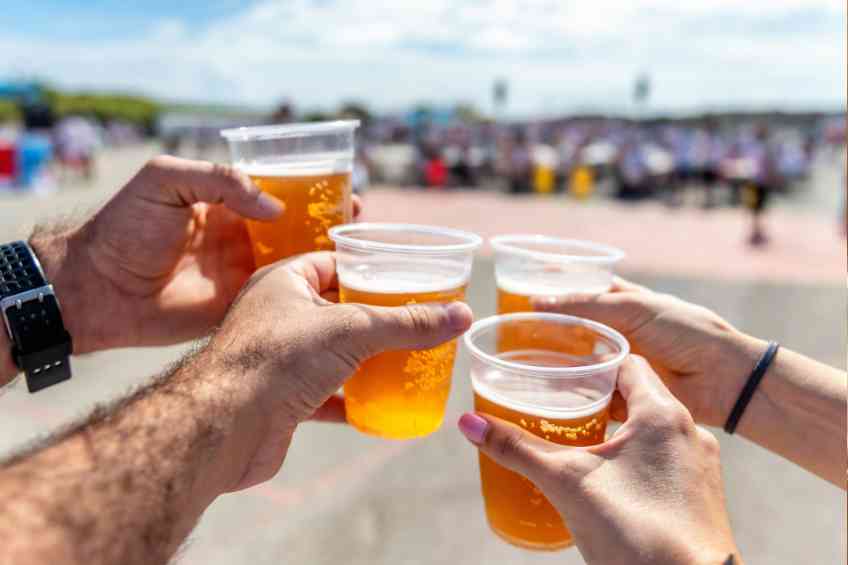By Sean Zucker –
The sight of beer tents following a charity run isn’t exactly uncommon. Most people, however, wouldn’t necessarily see the connection as a healthy one. A post-jog brew is more of a well-earned reward for pitching in. Well, maybe this negative connection needs to be examined. Tapping into a cold one after a workout may be a good way to improve recovery.
A pair of researchers at Old Dominion University in Norfolk, Virginia believe so, at least to a moderate extent. In what is reputed to be the first study of its kind, they examined the relationship between alcohol and physical exercise and concluded that one beer can operate as an effective hydration tool following a workout.
The study also noted that beer is rich in polyphenols, strong antioxidants that have the ability to improve digestion, brain function and blood sugar levels, as well as possibly protect against blood clots, heart disease and even certain cancers. Ultimately, a brew can offer benefits when consumed in moderation.
The team’s findings were based on a review of three major databases, PubMed, SPORTDiscus and Web of Science, ultimately gathering 16 related studies that touched alcohol and exercise.
Moderation isn’t the only consideration in reaping beer’s post-workout benefits. Alcohol content is another factor. The study specifically notes that only beers with less than 4 percent ABV or Alcohol By Volume apply here. Go over 4 percent ABV and any benefits are negated. Additionally, pre-workout beers are ill-advised.
“You would have to drink a ton of alcohol to even meet the amount of carbohydrates needed for exercise,” explained study co-author Jaison Wynne, a Ph.D. student at Old Dominion. “At that point, you’d be in too much of a stupor to even work out,” he told Men’s Health.
Wynne added that when individuals exercise, they lose both electrolytes and water. This can be countered by having a beer with food or opting for nonalcoholic alternatives, he said. In fact, one recent study following this data confirmed nonalcoholic beer is the ideal source of hops following a workout.
This study, appropriately named “Fit and Tipsy?”, examined the health of over 38,000 patients who visited the Cooper Clinic in Dallas, Texas for preventive medical examinations between the years 1988 and 2019. By using cardiovascular fitness as the core metric of physical health, each individual was asked to detail their regular alcohol use to then be designated as a low, moderate or heavy drinker. Ultimately, the researchers found that the people with higher aerobic fitness levels were more than twice as likely to be moderate or heavy drinkers as those who were in worse physical shape overall.
Bottom line? If the fridge is void of Gatorade, there are worse post-workout fixes than a nice cold light beer.












